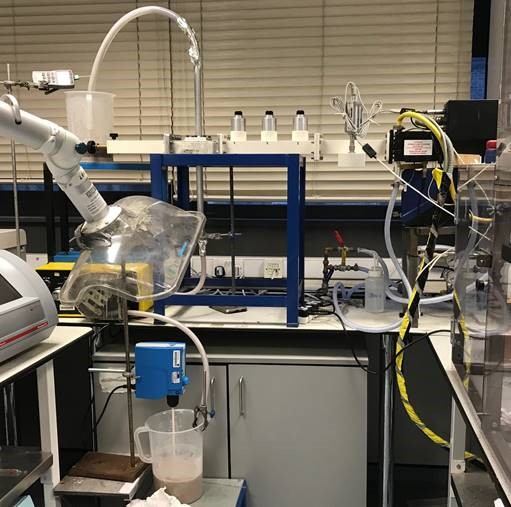
September 27, 2019, by Jo Gregory
Fermenting the unfermentable: the power of microwaves
Eleanor Binner and John Robinson are Associate Professors in Environmental and Chemical Engineering. They are both members of the Low Carbon Energy and Resources Technologies research group and the Green Chemicals Beacon.
In this interview, Ellie and John talk to Jo Gregory about their groundbreaking research using microwave technology.
What is your role here and how do you collaborate and work together?
John– I’m a chemical engineer and have been at Nottingham for 15 years developing expertise in microwave heating and microwave processing, in particular what it can do and what the benefits are. Over the last five years we’ve been starting to focus on how that technology applies to the arena of sustainability, and looking at biomass feedstocks as a replacement for fossil fuels.
Ellie– I’m also a chemical engineer with a background in microwave plasma processing and coal combustion, as well as working in the private sector in contaminated land for two and a half years. When I moved to the microwave group at Nottingham I joined the project that John was leading on soil contamination and was involved in scaling up the process he had been working on for several years, using expertise I had developed in heterogeneous materials and thermal processing. I started to see that there was a lot of opportunity in the food industry, and my early research into this uncovered a lot of overlap with our interests in soil and biomass. This resulted in us mapping out a strategy of how we wanted to move forward, pinpointing the expertise we were missing and then recruiting a team of bioscientists and chemists who could work on biomasses and food waste.
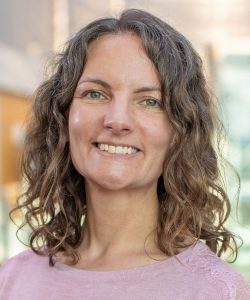
The original idea was that we both do thermal processing and work across a range of temperatures, as you can work at relatively low temperatures to extract high value materials, as well as at intermediate temperatures to try and disrupt biomass structures, which is where microwaves really have a unique effect that you can’t get in conventional thermal processing. John was also already working in pyrolysis (decomposition of materials through high temperatures) developing some unique technologies in a much higher temperature range. Now we have moved into some new areas which are all closely related and are all around understanding how microwaves interact with biomass or heterogeneous materials at every level.
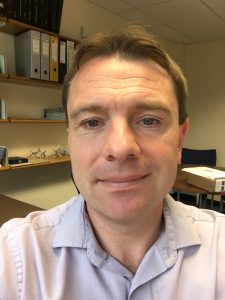 John-A lot of the understanding we have developed around biomass can also be applied to waste plastic, so there’s a whole extra area around plastic and chemical recycling that has really started to develop some traction and interest from industry partners over the last year.
John-A lot of the understanding we have developed around biomass can also be applied to waste plastic, so there’s a whole extra area around plastic and chemical recycling that has really started to develop some traction and interest from industry partners over the last year.
How is the research you are doing unique to your field?
John-The real strength of our research is that we are able to really understand what microwave heating can do and how that can lead to different or new products as well as having the ability to process materials which you can’t normally process. Our technologies are enabling us to ferment the unfermentable, allowing us to move away from first-generation biomass feedstocks and opening the door to second generation. We have also developed a unique pyrolysis technology that can selectively break down biomass producing unique pyrolysis products and biochemicals with a huge range of potential applications.
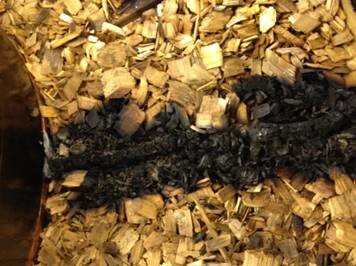
Ellie– The modelling we have been doing in conjunction with our experiments has lead us to new understanding of how biomass and microwave processes work. There isn’t a great deal of understanding by the microwave community of why microwaves work the way they do on biomass; there were theories based on qualitative observations, but nothing concrete. We have done some fundamental work which is starting to be published, one area of which is understanding how microwaves can uniquely effect mass transfer in biomass systems.

John-This means that you can break biomass apart and make it more amenable to some enzyme digestion or secondary processing, the impact of which is that you can take things which you can’t ferment or digest and you can make them digestible. We can add a lot of value to waste biomass materials by using microwave as a pre-treatment. By exploiting mass transfer effects as a process to break open the structures and make it more digestible to an existing suite of enzymes that they use. We have made significant developments in terms of what can then be extracted. As we are not biotechnologists we are really keen to work with biotechnologists to develop this technology.
Ellie– Researchers have been trying to do this for a long time, and in the past people who have done this it hasn’t worked and it’s just been a mess. You start with something which is quite energy rich in woody biomass and you end up with liquid and gas products which have some energy value but you can’t do much with them, so economically it makes no sense, and one of the reasons is to do with how these transformations take place. We have been able to engineer a microwave process which is much more selective and much more controllable, so its stops the secondary breakdown and produces a much higher value liquid product. We have a breakthrough technology that does this and there’s no other technology that’s able to do it. This has enabled us to look at product opportunities such as making plastics from wood and that’s showing some promise, and the other thing is that we can actually ferment a lot of that as well, so there’s other routes to other direct platform products chemicals as well.
John– Imagine heating wood to 500 degrees but underwater, that’s what we do. You get all sort of benefits from that in terms of controlling temperature, bubble formation, mass transfer and there is a lot of innovation that has gone into that which is unique to our research team here at Nottingham.
What are you aiming for in your research? And how does it contribute to the UN Sustainable Developments Goals (SDG’s) such as climate action and sustainable industrialisation?
John– We are in a position where if people have a particular problem, feedstock or need for a product or technology and they want some ideas about how they could improve it, I think we are in a pretty good place to be able to work with them, and assess whether microwaves could help them or whether there would be no benefit, that’s our aim and we are not too far away from that. We are way ahead of the competition in understanding microwaves, biomass and the effect you can get.
Ellie– the things I do at lower temperatures are not uniquely possible in microwaves but the more we research the more we understand how it might be useful to use microwaves because you can heat things very quickly. For example extracting pectin from food waste, I work with a company who has a lot of waste potatoes, and we take the pulp from a process. They have already taken the protein to valorise their waste, we then try to remove the pectin from the pulp which is part of the cell wall material. We are doing this in partnership with food scientists from the University of Reading who are really good at understanding gut microbe biology and are looking to make prebiotics (a dietary supplement designed to improve your health outcomes). They don’t currently have a satisfactory process to extract them (at the moment they use hot acid which actually destroys the pectin they want) so I’ve been helping them to develop a process that would be clean and scalable and we’ve looked instead at extracting things with water. It’s all about understanding what your process needs to do, and then designing it. We do lots and lots of systematic experiments which can be boring, but this is the great thing about working as a team as everyone works together and we have multi-disciplinary expertise.
John-At the heart of what we are trying to push with the networks and partnerships we are making with industry is that we understand the scale-up and we can conduct the project in a way which is not going to lead to a dead end so both of the technological breakthroughs around the cellular disruption for enzyme digestion as well as the pyrolysis is inherently scalable for any company that wants to come in and do stuff.
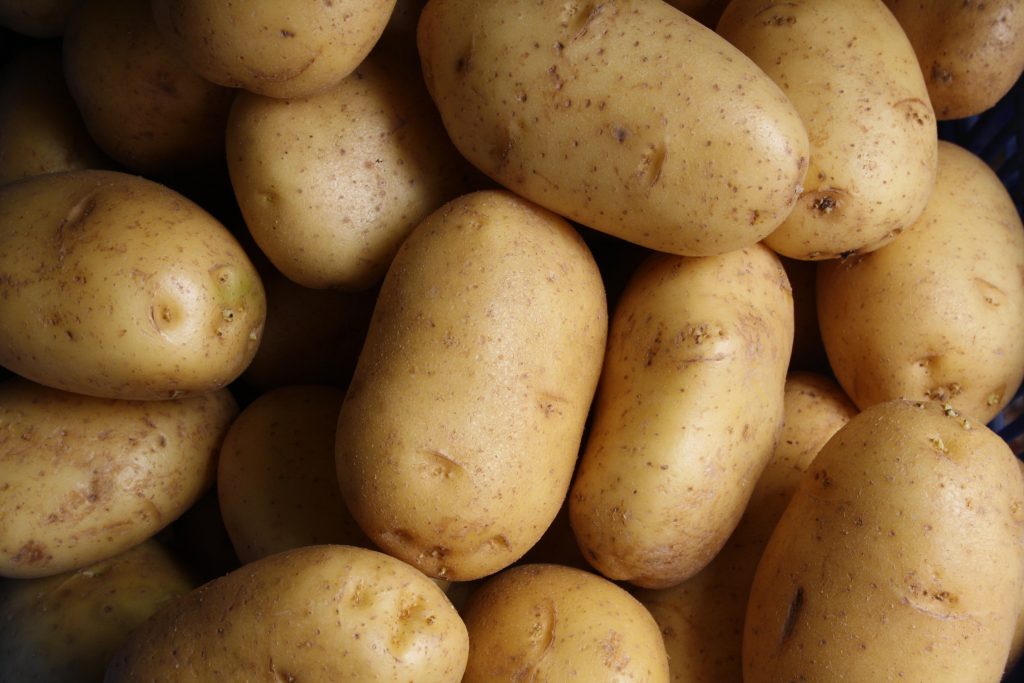
Is this an expensive process?
John Our pyrolysis technology is no more expensive than doing pyrolysis conventionally, it’s arguably less so as and we are looking at making better, more high value products, so even if it is a bit more expensive it will pay off.
Ellie– as well as the products being ‘better’ the original motivation was that you would have much smaller process equipment, and it would also reduce process steps. So you can potentially produce the things you are separating from the wood in one step, it should be cheaper as its reducing the number of operations in the process, and it’s a whole new approach to process engineering. This aligns with the vision of the Green Chemicals Beacon, in terms of the emphasis on life-cycle analysis and flow sheeting and doing these processes at the beginning rather than the end of a project.
How are you working with Industry? Do you have any EU collaborators and is there momentum for what you are doing in Europe?
John– We have worked with groups in Spain on the pyrolysis side and the microwave measurement side. We have a link in Germany focusing on making plastics out of wood for some of their products as well as links in Norway and France.
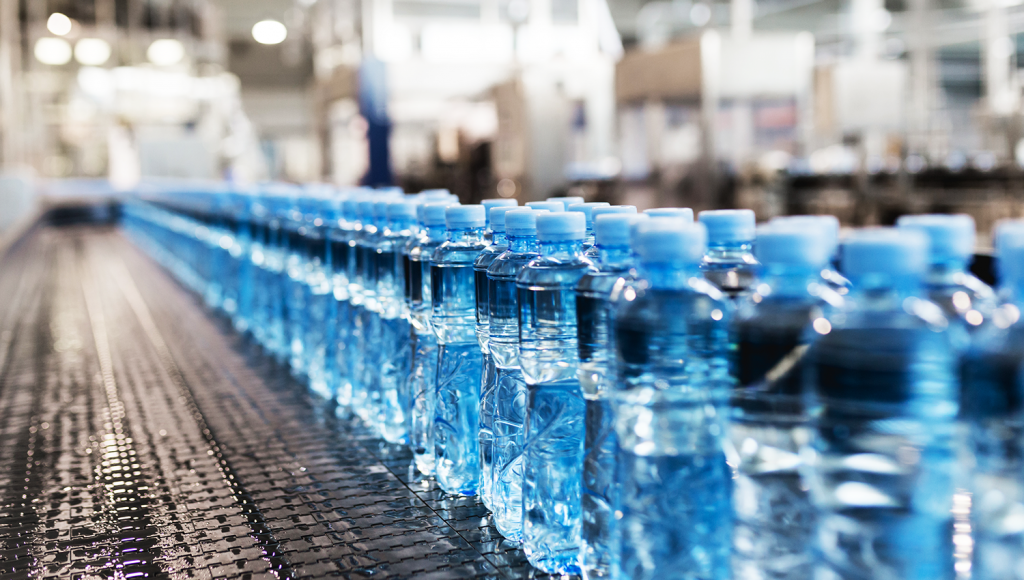
Ellie– We are interested in being part of a European consortia. Two areas in particular are really interesting to us. Natural product extraction is really big in Europe. We know quite a lot of people working in this area and are considering opportunities. I think stabilisation is potentially a really good European project and we have contacts in Europe who want to work with us on this.
John– We have the technologies which will enable industry to differentiate their product and make what they are already doing a lot better. What we are interested in as technology specialists is how the feedstocks we are using, the technology you use to treat it and the product you make are all linked together. We want to work with companies who understand this holistic approach, believe in using new technologies and have a particular product in mind that they want to make, and specific things they want to get from a feedstock.
How would you describe what you do to an ordinary person?
Ellie– One third of all of the food that is produced for human use is wasted – in fact a land area the size of China would be required to produce all of that wasted food. Our research looks at ways to use that waste to produce useful products that could, for example, improve health or replace chemicals that are currently produced from petrochemicals. Microwave processes are great because they are powered by electricity, which can be powered by renewable sources instead of fossil fuels, and because they can be very small and therefore mobile, reducing the need to transport wastes over large distances for processing.
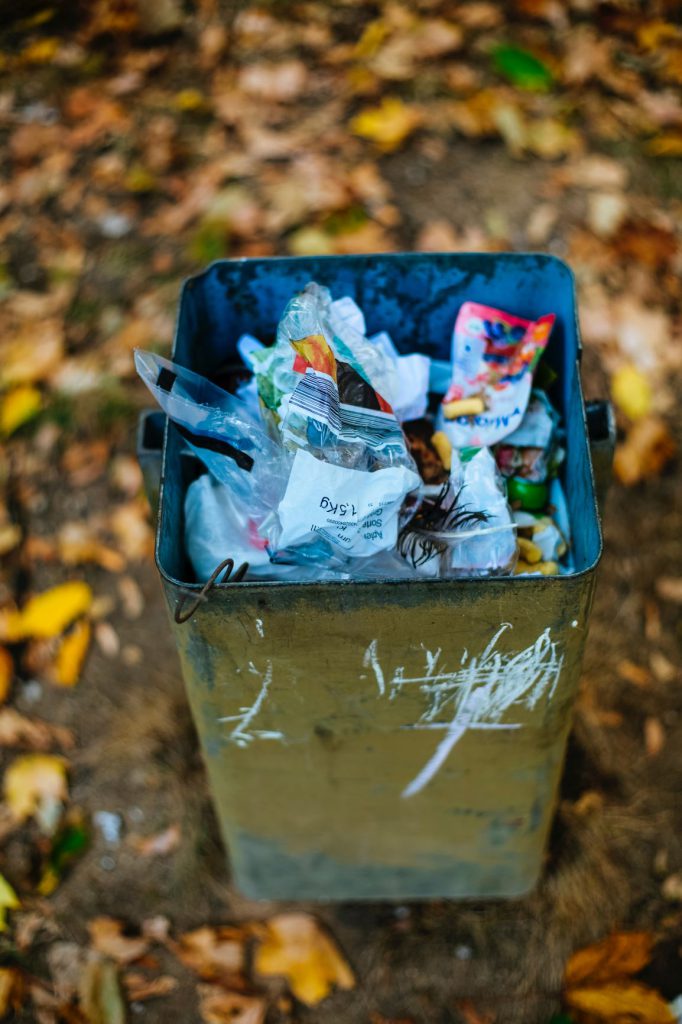
John– I look at new technologies to produce plastics more sustainably (not using crude oil or natural gas) and also to reuse plastics. As an engineer that’s what I do and what I’m interested in.
How can the Green Chemicals Beacon help you to achieve your goals?
Ellie– I like that the Beacon has initiatives that we could join in with and the support and inclusion is really useful for the Faculty. If significant resource is being put into our research it will present a much bigger picture of the work that people are doing.
John– I think the access to different networks is great, and the value is in bringing together people with different expertise and different facilities. That can only benefit what we are trying to do.
How important is your team in achieving your goals?
Ellie– It’s really important to both of us that we trust and support our post docs and our students, so we don’t tell them what to do at all, we give them ideas initially when they come here and then we let them build that into whatever they want to do. We have robust discussions with them, make suggestions and challenge them, but every single one of them achieves way more than we originally thought they would
John– By design, the team is really really important and it’s about trusting them as when you do that they get the license to be creative and come up with ideas we wouldn’t have, you can utilise their strengths better. The whole is greater than better than the sum of the parts if you work that way.
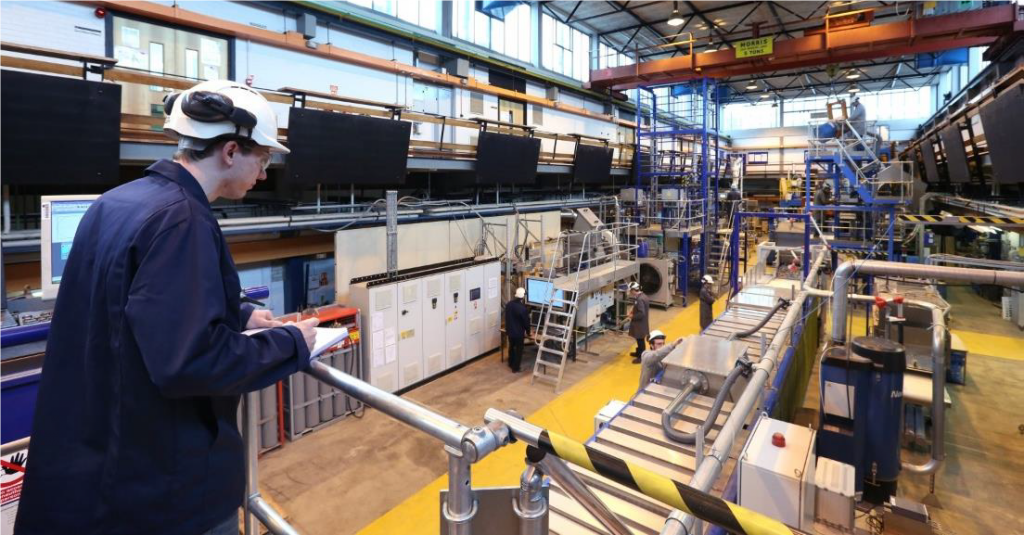
What are your motivations? Where do you get your inspirations from?
John– Getting new technologies out there is a great motivator. My other inspiration is people doing it wrong, that motivates me and a lot of my scientific breakthroughs have resulted from having taken offense at a theory and wanting to challenge it. For example people have talked about using microwaves to pre-treat biomass, with crazy ideas about how it all works. That inspired me to come up with a much more plausible theory, which took a couple of years to work through, but we ended up with something that worked, wrote a great paper, and this all stemmed from a nonsense idea!
Ellie-What’s always motivated me is that many things don’t work in the world the way we want them too. I wanted to be one of the people who were controlling how we were producing things, and making things better which is what chemical engineering is all about, which it turns out was quite forward thinking as sustainability is such a current issue, particularly here at Nottingham. I used to work in industry and it was boring. It wasn’t challenging enough. Even though I did do fieldwork and office work I still didn’t find that challenging enough and I didn’t have enough freedom to develop my own ideas. And that’s why we do this, because we enjoy it.
What are your plans for the future?
Ellie– The other great thing about microwaves is that they are small, and you can put them on a truck. So you can actually make a container that you can travel around to treat things at the source. My vision is to have a truck driving around zapping all of the apple peels!
In the short term I’m working with the Green Chemicals Beacon and the Future Foods Beacon on the Total Foods conference to be held in April 2020 at the East Midlands Conference Centre here in Nottingham, which focuses on maximising value from the food chain.

Do you have any advice for young engineers?
John– Being able to see the big picture really helps. As a chemical engineer that’s understanding the holistic link between the feed, the process and the product. As a researcher you will only specialise in one area so accepting this but seeing the big picture and understanding where you want to position yourself will help you to realise that you can make a difference in any one of those areas.
Ellie– Don’t be afraid to get it wrong as you learn through failure and that you can make a difference, and to me being an engineer is the best way to make a difference. Engineering is hard and can be monotonous, so you really want to believe in what you are doing, and if you don’t you should probably do something else. But if you do it’s really worth persevering. I’ve already left one career so I know that you have to be brave and change it sometimes!
If you are a company or organisation interested in working with Ellie and John you can contact them at Eleanor.Binner@nottingham.ac.uk and john.robinson@nottingham.ac.uk
To find out more about the Green Chemicals Beacon and how our team of researchers are working to secure the low carbon economy of the future, please visit the website or follow us on Twitter @UoN_GCB
Calls for papers and registration for the Total Food Conference 2020 will be available soon. Please check the Green Chemicals Beacon website for updates.
No comments yet, fill out a comment to be the first

Leave a Reply